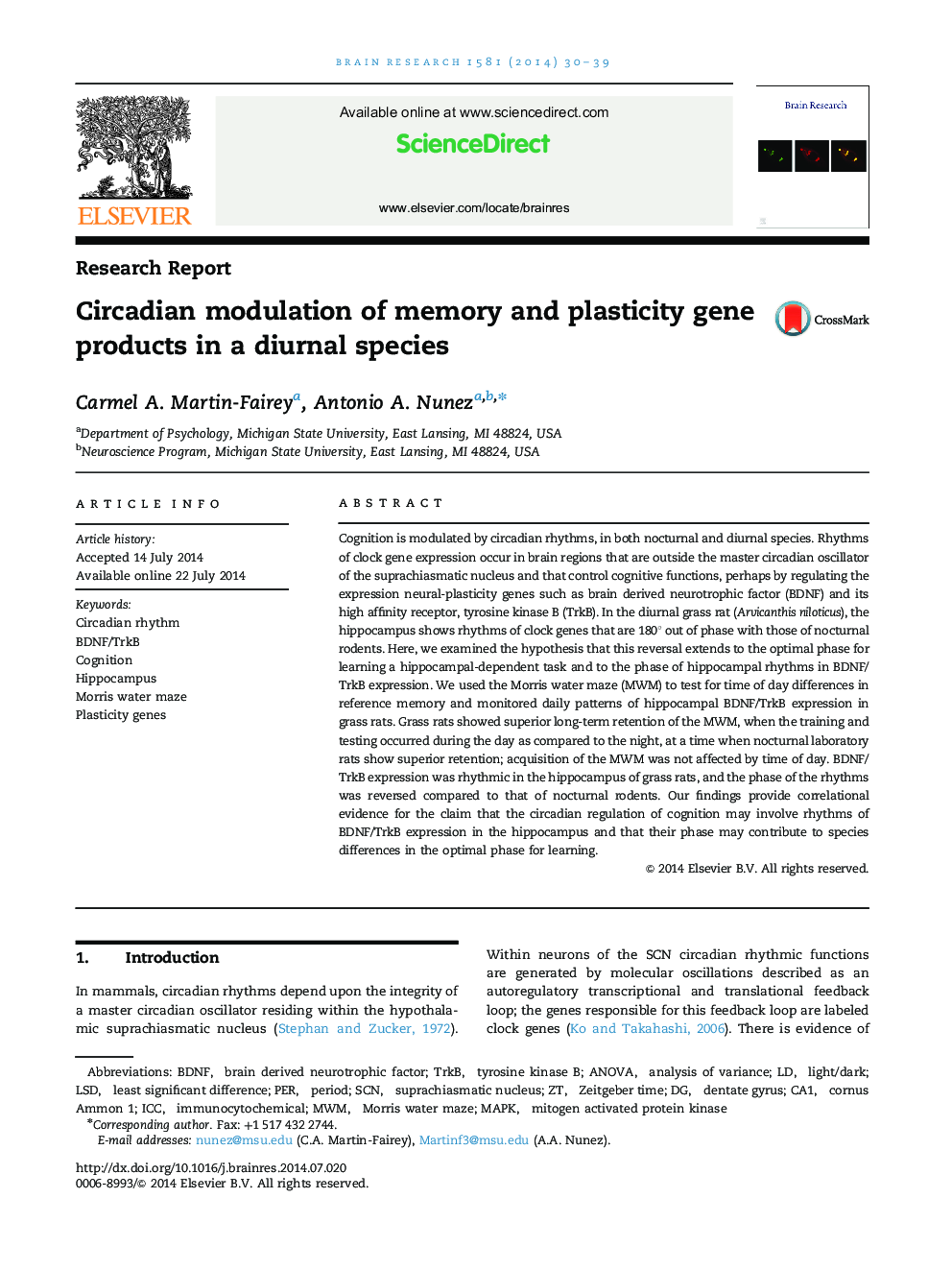| Article ID | Journal | Published Year | Pages | File Type |
|---|---|---|---|---|
| 4324170 | Brain Research | 2014 | 10 Pages |
•Cognitive functions show daily fluctuations.•Diurnal grass rats show superior retention when trained and tested during the day.•The phase of plasticity genes rhythms differ between grass rats and that reported for nocturnal rats.•The phase of hippocampal rhythms may dictate optimal phase for retention.•Effects of time of training were restricted to long-term retention.
Cognition is modulated by circadian rhythms, in both nocturnal and diurnal species. Rhythms of clock gene expression occur in brain regions that are outside the master circadian oscillator of the suprachiasmatic nucleus and that control cognitive functions, perhaps by regulating the expression neural-plasticity genes such as brain derived neurotrophic factor (BDNF) and its high affinity receptor, tyrosine kinase B (TrkB). In the diurnal grass rat (Arvicanthis niloticus), the hippocampus shows rhythms of clock genes that are 180° out of phase with those of nocturnal rodents. Here, we examined the hypothesis that this reversal extends to the optimal phase for learning a hippocampal-dependent task and to the phase of hippocampal rhythms in BDNF/TrkB expression. We used the Morris water maze (MWM) to test for time of day differences in reference memory and monitored daily patterns of hippocampal BDNF/TrkB expression in grass rats. Grass rats showed superior long-term retention of the MWM, when the training and testing occurred during the day as compared to the night, at a time when nocturnal laboratory rats show superior retention; acquisition of the MWM was not affected by time of day. BDNF/TrkB expression was rhythmic in the hippocampus of grass rats, and the phase of the rhythms was reversed compared to that of nocturnal rodents. Our findings provide correlational evidence for the claim that the circadian regulation of cognition may involve rhythms of BDNF/TrkB expression in the hippocampus and that their phase may contribute to species differences in the optimal phase for learning.
